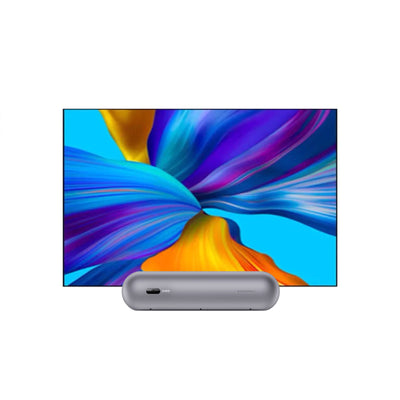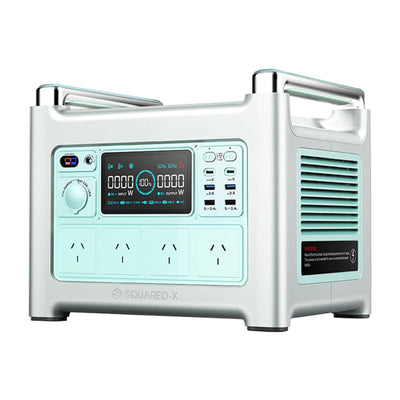Your Ultimate Guide to Buying a Movie Projector for an Epic Home Theater Experience
Are you planning a movie night with your friends or family? Do you want to enjoy a cinema-like experience in the comfort of your own home? If the answer is yes, then you need a high-quality cinema projector. With so many choices, it can be challenging to select the perfect one for you. In this guide, we’ll go over everything you need to know when buying a movie projector.
Why Choose a Cinema Projector?
If you're used to watching movies on your TV, you may wonder why you need a cinema projector. Well, there are several reasons why a cinema projector is a better option than a TV. Here are some of the benefits of owning a cinema projector:
Large Screen Experience
One of the most significant advantages of buying a cinema projector is the large screen experience. With a projector, you can enjoy a movie on a screen that's much larger than any TV screen. You can create a cinematic experience in your home with a projector that can replicate the theater's atmosphere.
Flexibility
Cinema projectors offer flexibility in terms of where you can watch your movies. Unlike a TV, a projector can be set up in any room, whether it's your living room or your backyard. You can also project onto any flat surface, such as a white wall or a projector screen.
Affordable
Contrary to popular belief, cinema projectors are affordable, especially when compared to high-end TVs. For a fraction of the cost of a high-end TV, you can buy a cinema projector that offers a larger screen experience, better image quality, and more flexibility.
Factors to Consider When Choosing a Cinema Projector
When choosing a cinema projector, there are several factors that you need to consider. These include:
Brightness:
It is the brightness measured by lumens. For a cinema-like experience, you need a projector with at least 2000 lumens. If you have a dedicated home theater room, you can go for a projector with higher lumens
Understanding Brightness: Lumens Explained
Another aspect to be considered when buying a cinema projector is brightness. Brightness is measured in terms of lumens which refer to how much light the projector is able to emit. Its brightness grows as the lumen count increases. However, it's important to note that brighter isn't always better - if you're using the projector in a dark room, if you're not using it in a bright room, you don't need as many lumens. Here’s a rough guide to lumens:
1000-1500 lumens: This is a good option for small screens or dark rooms.
1500-3000 lumens: This is a good option for medium-sized screens or rooms with some ambient light.
3000+ lumens: This is a good option for large screens or bright rooms.
Resolution: The resolution of the projector determines the image quality. You can choose from 720p, 1080p, and 4K resolution projectors. For a cinema-like experience, we recommend going for a 1080p or 4K resolution projector.
Understanding Resolution: What Do the Numbers Mean?
When it comes to cinema projectors, resolution is an important factor to consider. Resolution refers to the number of pixels on the screen, and the higher the resolution, the clearer and more detailed the image will be. However, with so many different numbers and acronyms floating around (e.g. 720p, 1080p, 4K, etc.), it can be confusing to understand what they mean. Here's a quick breakdown:
720p: This resolution is also known as HD or high-definition, and refers to a screen with 1280x720 pixels. It's a good option for smaller screens or those on a budget.
1080p: This resolution is also known as full HD, and refers to a screen with 1920x1080 pixels. It's a popular choice for home theater setups and provides excellent picture quality.
4K: This resolution is also known as ultra-high-definition, and refers to a screen with 3840x2160 pixels. It's the highest resolution currently available for cinema projectors, and provides stunningly clear and detailed images.
Contrast Ratio: The contrast ratio of the projector determines the difference between the darkest and the brightest parts of the image. Better image quality is associated with a higher contrast ratio.For a cinema-like experience, we recommend going for a projector with at least 1000:1 contrast ratio.
Throw Distance: The throw distance of the projector is the distance between the projector and the screen. You need to choose a projector with the right throw distance for your room size. If your room is small, you can go for a short-throw projector, whereas, for larger rooms, a long-throw projector is recommended.
Connectivity: The projector should have multiple connectivity options, such as HDMI, USB, and Wi-Fi. This will allow you to connect your devices and stream content easily.
Connecting Your Cinema Projector: Cables and Wireless Options
Once you've chosen your cinema projector, it's time to connect it to your other devices. There are a few different options for connectivity, including cables and wireless options.
HDMI: HDMI cables are the most common way to connect a cinema projector to a device like a laptop or Blu-ray player. Most projectors have at least one HDMI port, and some have multiple.
USB: Some projectors also have USB ports, which allow you to connect devices like flash drives or external hard drives to play media files.
Wi-Fi: Many newer projectors come with Wi-Fi connectivity, which allows you to connect to your home network and stream content from services like Netflix or Hulu. Some projectors even have built-in apps for popular streaming services.
Brand and Price: Finally, you need to choose a brand and a price that fits your budget. There are many brands in the market that offer cinema projectors at different price points. We recommend going for a reputable brand that offers good after-sales service.
Best Buy Cinema Projectors in Australia
At Coodoo, we offer a wide range of cinema projectors from top brands such as XGIMI and JMGO. Here are our top favourites:
JMGO O1 projector:The JMGO O1 performs exceptionally well for its price range. The image quality is crisp and sharp, with accurate colors and good contrast. The ultra-short throw lens allows you to place the projector just inches away from the wall or screen, providing a large image size without any distortion. The built-in Harman Kardon speakers offer a clear and immersive audio experience, making it ideal for watching movies, sports, or playing games.
XGIMI Mogo Pro Projector:The XGIMI MoGo Pro is a great portable projector that offers excellent performance and features. It provides a high-quality image and audio experience in a compact and convenient package. The MoGo Pro is perfect for those who want a hassle-free home entertainment experience or for those who want to use a projector on the go.
Tips for setting up your home theater:
Consider the viewing distance: The distance between the screen and the seating is important for creating an optimal viewing experience. A good rule of thumb is that the viewing distance should be about 1.5 to 2.5 times the diagonal screen size. For example, if you have a 100-inch screen, the ideal viewing distance would be between 150 and 250 inches away.
Control ambient light: Ambient light can have a big impact on the quality of your image. Ideally, you want to have complete control over the lighting in your room. If that's not possible, consider using blackout curtains or shades to block out any unwanted light. Additionally, you can paint your walls a dark color to help absorb any ambient light.
Consider a projector mount: A projector mount can help ensure that your projector is always properly aligned with the screen. This is especially important if you plan to use the projector in a fixed location. There are many different types of mounts available, so be sure to choose one that's compatible with your projector and your room.
Invest in quality cables: While it's tempting to skimp on cables to save money, investing in quality cables can make a big difference in the quality of your image and sound. Look for cables that are made with high-quality materials and have good shielding to prevent interference.
Choosing the Right Sound System for Your Home Theater
One of the key elements of a great home theater experience is the sound system. While a cinema projector can provide stunning visuals, it's the sound system that really brings movies to life. When choosing a sound system, there are a few key factors to consider:
Sound quality: Look for a sound system that delivers clear, crisp audio with a wide dynamic range. This will help ensure that you hear all the subtle details of your favorite movies and TV shows.
Speaker positioning: The positioning of your speakers can have a major effect on the excellence of your sound.Ideally, you want to place your speakers in a way that creates a seamless, immersive listening experience. This may involve placing speakers at different heights and angles to achieve optimal sound quality.
Compatibility: Make sure that your sound system is compatible with your cinema projector and any other equipment you plan to use. Look for systems that support the latest audio formats and have a range of inputs and outputs to accommodate all of your devices.
Conclusion
Choosing the right cinema projector can make all the difference in creating an unforgettable movie night experience. When selecting a cinema projector, consider factors such as lumens, resolution, contrast ratio, throw distance, connectivity, and portability. Coodoo, the trusted suppliers of XGIMI, and JMGO projectors in Australia offer a range of options to choose from. If you're looking to buy a cinema projector, be sure to check out their selection.
















